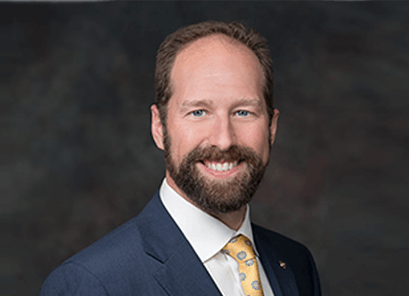Email Is Still Mail
Clients hire you for your advice – they have every expectation that your advice should be well thought out and consider their personal financial situation.
4 min read

Certified Financial Advisor, CFP®
The first version of email surfaced in 1965. In 1996 Microsoft released Internet Mail, and in less than 366 days, over ten million people had email accounts.
Electronic mail was more contagious than measles. Everyone wanted or needed an email account to function productively in the brave new world the internet was shaping.
Somewhere along the way, though, we forgot that mail is just that… mail.
It is mail. Written correspondence is not an immediate fire that the Financial Advisor needs to rush on-site and immediately begin troubleshooting.
It is mail.
Think about that for a moment. If you received a piece of written correspondence from a client, would you open it, read it and rush to your desk to break out your quill and ink and pen a letter back?
No. Your response would take time. You would be methodical and intentional about how you responded to the client.
You would treat a letter with the formality, dedication, and devotion to the client’s needs that the client should receive.
When you write a letter to the client, it follows the standardization of business letters. Or, should.
Review the last three emails to the clients you sent out this week. Are they casual?
Is the work that you do as a Financial Advisor casual?
Do your clients pay you to be casual?

Always On
In the world of information, you have to ask yourself why clients are hiring you?
Are they hiring you for instant information? No. Google can provide that faster and in greater depth than you.
Clients hire you for your advice. Therefore, they have every expectation that your advice should be well thought out and consider their personal financial situation.
Clients want you to be intentional, dedicated, and comprehensive. However, you cannot be intentional when you forever feel that you are always “on” or expected to respond within moments of them having sent you a message.
Email is not instant communication and should never replace having a conversation or meeting with a client.
Email communication to clients has become one of the most important and immediate tasks of Financial Advisors, and it is a complete disservice to clients.
The culprit causing all these unrealistic expectations and sloppy levels of service is – the financial advisor.
Go through an example with me, if you will. For example, instead of a client working with a Financial Advisor, let’s say that they were working with their doctor.
When you call the doctor’s office, do you instantly get the doctor on the phone? No, you have the expectation that they are seeing other patients.
Have you ever been able to email your doctor directly? If so, do you get a same-hour response from them? In the medical industry, instantly responding to client emails is not the industry norm. Still, we have made it the industry standard in the financial advisory world, and it needs to change.
Clients@ email address
I left my broker-dealer in 2018 and went completely independent as a Registered Investment Advisory firm. I had a great relationship with the BD, and I think of them in a positive light; a relationship luxury that I know many FA’s who leave BD’s do not have.
One of my frustrations, when appointed with a BD, was the habitual sharing of my email address.
After a conference wrapped up, I swear they hand-typed it into every wholesaler’s address book.
It was a barrage of communication that cluttered my inbox and distracted me from reading and prioritizing my clients’ emails.
That was one of the driving reasons we created a clients@ email account. I still want my clients to be able to reach out to our office and receive a 24-hour response from us, but that response does not always need to come from me as the Financial Advisor, mainly because many client requests don’t involve me.
If a client needs financial planning advice, that is when I am needed. Most of the day-to-day operations, though, like updating email addresses, processing payments, document management… that’s not me; it is my team. Trust me; my team doesn’t want me to handle those things either because we have created a series of systems and processes that make their lives super-efficient when it comes to responding and handling client needs. I will break their system each and every time.
We let our clients know when we rolled out the clients@ email address. We want to ensure that they understood our job was to ensure that they received VIP level service from our advisory firm. We can’t provide that level of service if our inboxes are full of spam. We would spend too much time sorting through what doesn’t matter instead of prioritizing who did matter most, our clients.
If a client needs one of our firm’s Financial Advisors, they can still get to us. Of course, they can still email us, but now they know that they won’t receive a same-day response, and the best course of action is to schedule time with us to thoroughly go through their questions and concerns.
With clients, always intentional attention.
Popular Topics
Value Adds
If you are routinely providing clients with value adds in a consistent, efficient, and deliverable
Still Holding Out on Surge™? 2023 Could Be Your Year
Micah Shilanski, CFP®, busts myths and misconceptions surrounding Surge meetings and shows how
5 Questions Every Advisor Should Ask
Matthew Jarvis, CFP®, answers five essential questions every advisor should ask to transform
Stop Stressing About Raising Fees – We’ve Got You Covered
Raising fees can feel nerve-wracking—palms sweaty, mind racing, worrying if clients will walk
Why You Should Never Apologize for Raising Your Fees
Matthew Jarvis, CFP®, answers five essential questions every advisor should ask to transform
What You Should
READ NEXT
Want to Deliver Massive Value? Here’s How
Micah shares a client story about using a simple, hand-drawn value-add to catch a critical error and deliver massive
5 Mistakes Advisors Make When Creating value adds
Matthew Jarvis, CFP®, discusses the five biggest mistakes advisors make when creating value adds for their
“Lifestyle Practice” Doesn’t Mean What You Think It Does
In this article, Micah Shilanski, CFP,Ⓡ clears the air on what a Lifestyle Practice is and when it becomes a cover for a lazy

I honored one of my extreme accountability commitments which was to completely unplug for two weeks.”

– Amy l.
Start the change today!
Get our 3 most popular power sessions FREE. You and your team will learn about: Time Blocking, the One Page Financial Plan, and the “Buckets of Money” approach.



